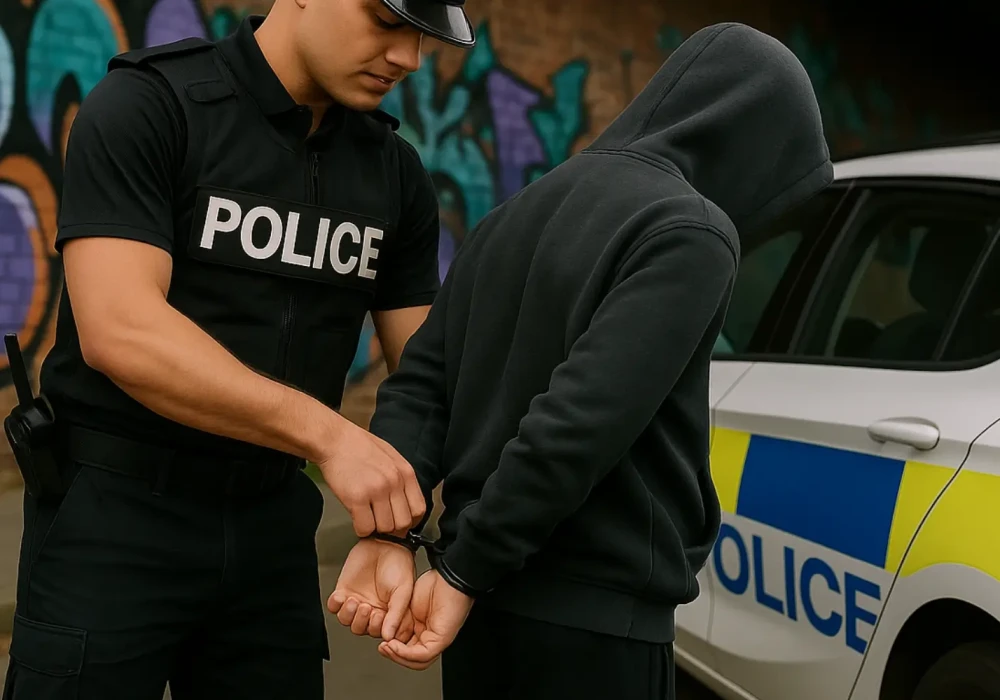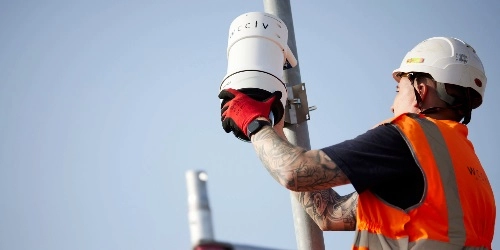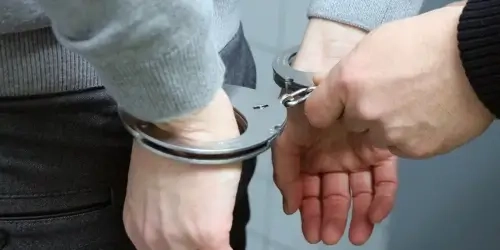Recent research from gov.uk highlighted that 59.9% of people say that more needs to be done to tackle anti-social behaviour.
Having supported numerous Local Authorities and Councils to reduce Anti-Social Behaviour (ASB), we understand the key approaches that can be taken to tackle such challenges.
Due to the varied crime types that fall under the umbrella of ASB, it can be difficult to target each area individually whilst keeping your costs within budget.
Below, we detail how our Police and Local Authority partners are tackling ASB and the critical role Redeployable CCTV Cameras plays in these differing approach:
Understanding ASB
Anti-social behaviour, often abbreviated to ASB, is a term used by the Police force within the UK to broadly characterise 'behaviour by a person which causes, or is likely to cause, harassment, alarm or distress to persons not of the same household.'
The catch-all term is split into three distinct categories:
- Personal anti-social behaviour: A person is targeting a specific individual or group.
- Nuisance anti-social behaviour: A person is causing trouble, annoyance or suffering to a community.
- Environmental anti-social behaviour: A person's actions affect the wider environment, such as public spaces or buildings.
Under these three main headings fall several crimes that are specific examples of anti-social behaviours, ranging from street drinking and fly-tipping to vehicle abandonment and begging.
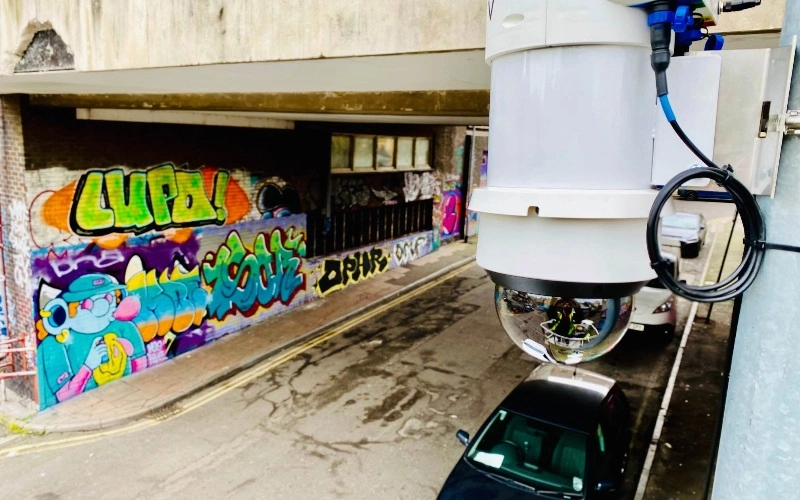
What are the Most Common Types of ASB?
Statistics gathered by our partners working for anti-social behaviour reduction teams within Public Sector organisations such as Police, Local Authorities and Housing Associations suggest the most common types of anti-social behaviour are as follows:
- Criminal Damage
- Loitering in Public Spaces
- Neighbour Nuisances
- Graffiti
- Arson
- Drug-dealing
- Fly-tipping and Littering
- Noise Disturbances
- Hate Crimes
- Assault
- Harassment
- Alcohol-related Crime
With such a broad range of behaviours, it makes sense that there can be no singular solution to tackling and preventing ASB.
Therefore, for many looking to tackle ASB, they will look to take a blended approach in order to manage the different crimes that communities could be faced with.
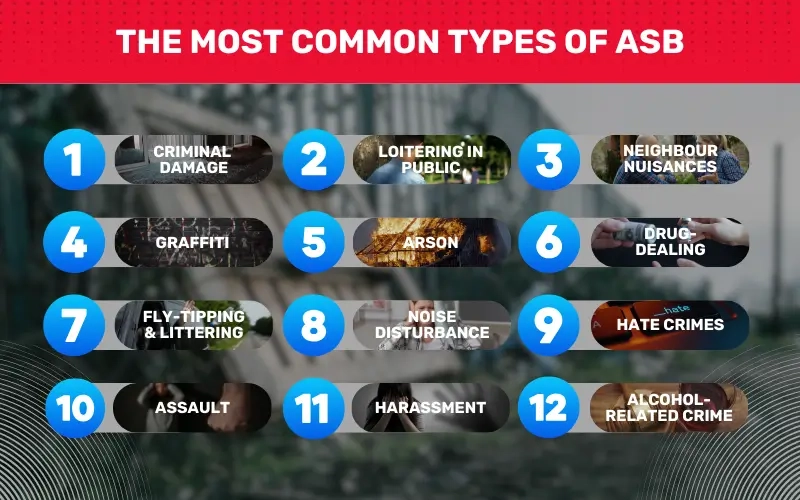
Who is Responsible For Tackling Anti-Social Behaviour?
Generally referred to as a collection of 'low-level' crimes, the severity of ASB can often be diminished, along with the impact it has on its victims and any communities faced with high-levels of it.
However, left untreated, ASB can be devastating, at times even leaving individuals to move out of their home and go elsewhere. Crimes placed under this umbrella also tend to negatively impact businesses and any visitors in the area.
Typically, the overarching responsibility falls with the Police, Local Councils and Housing Associations to implement measures that protect their communities. Other support is available for victims, but this is not the case in all scenarios.
The following groups all have a role to play in reducing ASB:
- Local Council
- Local Police
- Landlords and Housing Associations
- Fire and Rescue Service
- Voluntary Support Groups/Charities
- Business Improvement Districts (BIDs)
- Business Owners Groups
Each group listed above has their own methodologies for tackling ASB or providing support and advice to victims.
The Police, Councils and Housing Management teams in particular have legal powers to punish those committing acts of ASB.
These powers include fines, restraining/banning orders and even custodial sentences.
Each of these groups have enforcement teams that are dedicated to reducing ASB and ensuring enforcement takes place on any illegal activities.
If you require any support with issues of ASB, we encourage you to contact one of the above-listed groups to get advice and assistance first.
The dedicated teams within Public Sector organisations and charities are trained in supporting such issues and are the best port of call for businesses, residents and visitors to reduce and prevent its impact.
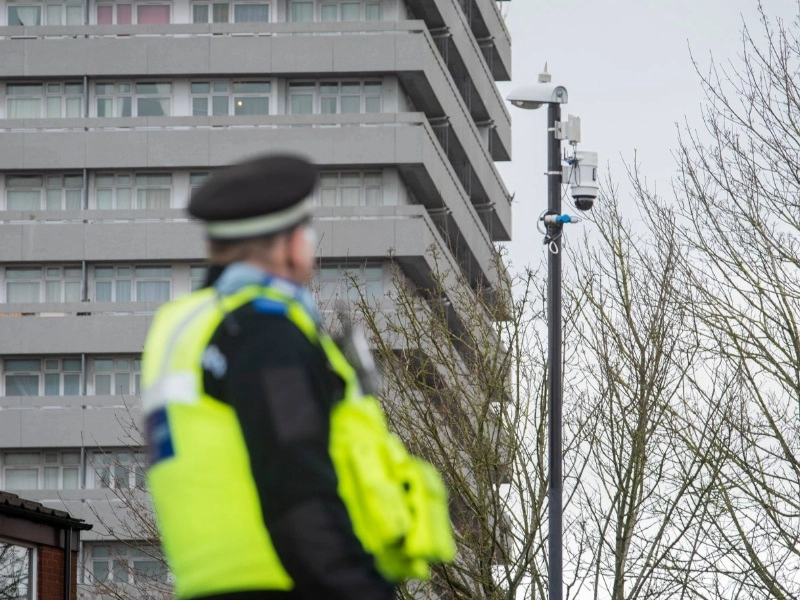
How to Prevent Anti-Social Behaviour
As mentioned, each group will tackle ASB differently due to their varying powers and objectives set out within their remit.
So, just as it is challenging to pinpoint ways to tackle ASB due to the vast number of crimes the term covers, it is equally challenging due to the number of groups targeting it.
However, all of these groups will have the same core objectives and aims, which include:
- Reducing crimes of all types
- Making people feel safer
- Reducing the harm caused by drug and alcohol abuse
- Preventing offending by children and young people
- Reducing adult re-offending
- Developing community cohesion
Some core reduction and prevention strategies apply to all bodies looking to tackle ASB, including legal measures and community engagement tactics.
These strategies include:
Community Engagement and Reporting Support
Referred to as an 'ASB Case Review', this process aims to support victims and communities in ensuring Local Authorities and Agencies review recurring instances of ASB.
Each body will have their own threshold which will need to be reached before it triggers the request for response from that specified agency.
The threshold cannot be any greater than 3 complaints and if accepted as having met the threshold, a review must take place, outcome provided and any recommendations in relation to this.
Essentially, it encourages equal dealing with ASB across various agencies, holding them accountable for managing repeated instances of any crime that falls under this umbrella.
Other available community support tools include Neighbourhood Watch and Street Watch.
Multi-Agency Approach
A multi-agency approach involves various groups and agencies like the Police, Housing Association, Health Services and Charities collaborating to understand the impact of ASB on specific victims and determining the best approach to act against offenders.
Within every Local Authority area, there are statutory bodies named Community Safety Partnerships which are responsible for crime and ASB strategies.
These partnerships are built of experts and trained professionals who dedicate their time to research and create dedicated approaches through available data and resources.
Early Intervention and Prevention
Early intervention approaches tend to target young offenders specifically, helping to both prevent and intervene early on to help promote them onto the right track.
This includes positive engagement, education, mentoring, and diversion activities to support individuals in understanding the dangers of engaging in ASB and steering those already involved to engage in healthier activities.
For some, they may utilise Acceptable Behaviour Contracts which are voluntary agreements that outline the behaviour individuals should display. Often taken as a precautionary step before legal action.
Visible Policing
Within policing, there are dedicated teams like Police Community Support Officers and Neighbourhood Policing Teams, who specifically work on improving community relationships and handle low-level ASB.
This approach provides both peace of mind for many visitors and residents within the area as they can visibly see support is present, but also in reducing ASB and its impact.
Although these teams will often hold less legal authority with enforcement action, by effectively working alongside the Police, they can help understand root causes and reduce ASB collectively.
Education and Awareness Campaigns
For Local Authorities and other agencies, public awareness campaigns are becoming increasingly common, especially in sharing key messages or reporting processes within the area.
Most individuals now seek their news online, making it a useful engagement tool for many organisations.
From sharing reporting processes to informing individuals of the repercussions of various ASB offences, you can target posts by location and other factors to ensure a more successful outcome.
The Role of Redeployable CCTV in ASB Reduction
Although CCTV systems have long been established as an effective solution in preventing or catching crime, Redeployable CCTV has proven to show consistent success at targeting ASB.
The main reason being their portability which allows them to be transitioned to various locations depending on your security needs.
This is particularly important with ASB as hotspots will often develop and change, therefore you need a system that can manage this.
Other key features of our Redeployable CCTV includes:
- Rapid installation to provide immediate coverage to the impacted location or ASB hotspot
- Cellular connectivity that allows for live and recorded footage to be accessed remotely, allowing for coverage of rural, off-the-grid locations
- Advanced camera technology that helps to provide comprehensive coverage and crystal clear imagery if any ASB is captured
- Remote access and control that facilitates the proactive monitoring and swift response to ASB incidents
- Video analytics that help to detect motion and identify specific behaviours in order to provide a targeted response
- Continuous system diagnostics through our Heartbeat software that ensures product health is maintained and any issues are responded to promptly, supporting uptime
- Control room integration compatibility that allows our system to be integrated into existing Video Management Systems (VMS)
- Additional features that allow you to customise our system to your needs
By deploying the Redeployable CCTV Cameras at ASB-related locations will support in serving multiple purposes:
Community Reassurance
Often, communities with areas of high-level ASB are most impacted by this crime type.
It creates a sense of fear, dislike and concern surrounding individuals safety in that location and in more severe cases will push households to move outside of the area to avoid the ASB and its impacts.
With the presence of Redeployable CCTV, this offers a sense of reassurance as there is a clear presence of cameras and that monitoring is taking place.
This works as both a criminal deterrent to those looking to involve themselves in ASB and in reassuring victims that areas are being monitored as needed.
Systems backed by remote monitoring services like ours are considered to support even further by utilising monitoring centres for 24/7 coverage, assessing threats and responding appropriately to ensure the best prevention against ASB.
The presence of CCTV assures residents that action is being taken in regards to their issues
Expanded Coverage Beyond The Human Eye
Although policing supports heavily in active incidents and in reassuring the public regarding their safety, the human eye can only provide so much protection.
With high-grade security cameras like the ones we use across our full product range, you receive expanded coverage without needing to skimp on footage quality.
Even when darkness hits, our Redeployable CCTV Cameras can provide up to 200-metres of coverage and crystal clear imagery, minimising the risk of any ASB crime going amiss.
Criminal Deterrence
Studies have shown that overt CCTV systems have a transformative effect, and discourage ASB.
The simple presence of a camera will often lead many individuals to believe that they are being monitored and recorded, which for most will be off-putting when committing a crime.
Due to the range in legal consequences across the various ASB crime types, implementing a monitoring system can remove that sense of security some offenders will utilise in order to carry out their crimes.
Evidence Gathering
High-quality Redeployable CCTV systems will gather video evidence to support prosecutions against offenders.
This is often needed as part of the enforcement process to provide the best chance of prosecution and without this, poor quality footage could actually hinder your case more than help it.
With our systems, you have access to live and recorded footage from any device, anywhere you are, making this process as simple as possible for any Local Authorities and Agencies in following up such actions.
Why Choose Redeployable CCTV to Tackle ASB?
Our Redeployable Cameras have been highly-effective in supporting Police, Local Authorities and Housing Associations to reduce a range of ASB activities.
Compared to other providers, we offer a fully-managed security service that allows you to be as hands-on or as hands-free as you wish to be.
Discover more on our Case Studies page or for more information on how we can directly support your area, speak with one of our security experts today!
